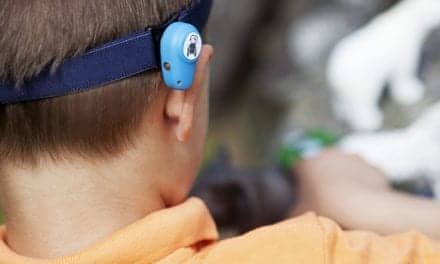University of Washington researchers are developing a vestibular prosthesis to help restore balance for those affected by Meniere’s disease.
Many disorders of the inner hear that affect both hearing and balance can be hugely debilitating and are currently largely incurable. To date, there is no treatment for balance disorders resulting from inner ear disease, such as Meniere’s.
One potential new treatment is an implantable vestibular prosthesis, which would directly activate the vestibular nerve by electrical stimulation. Analogous to a cochlear implant, this prosthetic treatment was tested and the results published in a new study by Christopher Phillips and colleagues from the University of Washington in Seattle. Their findings are published in the Springer journal Experimental Brain Research.
The experimental vestibular prosthesis delivers electrical stimulation to the fluid inside the semi-circular canals of the ear. In effect, the stimulation of the fluid makes the brain believe that the body is moving or swaying in a certain direction. This then causes a compensatory postural reflex to stabilize the posture, thereby helping to restore balance.
For their study, the prosthesis was inserted into the ears of four subjects who were suffering from long-term Meniere’s disease and differing degrees of hearing loss. After a full evaluation of each participant’s vestibular function, their eye function was measured in response to electrical stimulation along with their postural response with their eyes both open and closed.
The researchers found that electrical stimulation of the fluid in the semicircular canals of the affected ear did result in a change in posture, the direction of which was dependent on which ear was stimulated. However, each subject had different sway responses to the stimulation given. The authors believe this could be caused by small differences in the location of the electrode between subjects. Thus, fine tuning and individual calibration for each electrode implant would be required for it to be effective.
Overall, the results illustrate that this type of prosthesis may eventually be a possible treatment for balance issues caused by Meniere’s disease.
The authors conclude: “Taken together, our findings support the feasibility of a vestibular prosthesis for the control of balance and illustrate new challenges for the development of this technology. This study is a first step in that direction.”
Reference: Phillips C, et al. (2013). Postural responses to electrical stimulation of the vestibular end organs in human subjects. Experimental Brain Research; DOI 10.1007/s00221-013-3604-3.
SOURCE: Springer




